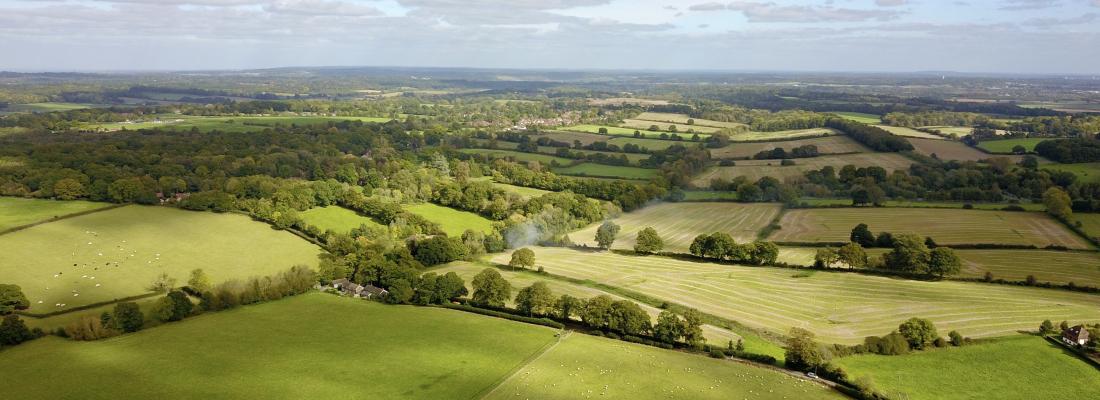Climate change and risks Reading time 2 min
For more climate-neutral and climate-resilient farms across Europe
Published on 22 October 2021

Supporting the Farm to Fork (F2F) strategy, contributing to the achievement of its objectives, the ClieNFarms project aims to demonstrate, evaluate and improve technical, organisational and financial solutions at the farm level that will contribute to achieving climate-neutrality of European agriculture by 2050. This will be done by a multi-actor approach, interactively integrating and improving existing solutions to achieve economically viable business models in farming systems by involving farmers, extension services, agrifood businesses, policymakers and citizens. These solutions will be disseminated, and young farmers will be targeted through capacity building.
The central operational focus of ClieNFarms is the case-study structure that will allow a strong empowerment of farmers and supply chain accompanied by a smooth dissemination and replication of the tested innovations. Called I3S (Innovative Systemic Solutions Space), the demonstration structure is based on demonstration farms, commercial farms, outreach farms and replicate farms all working together with the supply chain in a living-lab like structure approach.
ClieNFarms also intends to pave the way for combined biogeochemical (reduction in GHG missions, increase in C storage) and biogeophysical effects (increase in surface albedo, reduction in sensible heat flux and infrared radiation) in order to mitigate climate change more efficiently, without any negative impacts for food security or yield/product quality.
The project is vastly innovative as it aims to: (1) integrate different solutions to embrace mixed crop farming systems and animal production; (2) account for biogeophysical effects associated with changes in management practices in order to promote the synergies between the biogeochemical effects and the biogeophysical effects; (3) move from farm level to (eco)system level either through farm networks or by involving supply chains in a multi-actor designed process; (4) evaluate and validate integrative solutions and to develop the required financial incentives to engage farmers in the required transition.

Funding: 12M€
Duration: 48 months
Partners: 33
Countries: 14
1 INSTITUT NATIONAL DE RECHERCHE POUR L'AGRICULTURE, L'ALIMENTATION ET L'ENVIRONNEMENT (FR) | 2 AGENCIA GALLEGA DE LA CALIDAD ALIMENTARIA (ES) | 3 AGRESEARCH LIMITED (NZ) | 4 AGRICIRCLE AG (CH) | 5 Association de Coordination Technique Agricole (FR) | 6 BERNER FACHHOCHSCHULE (CH) | 7 BIOFORUM (BE) | 8 BIOSENSE INSTITUTE - RESEARCH AND DEVELOPMENT INSTITUTE FOR INFORMATION TECHNOLOGIES IN BIOSYSTEMS (RS) | 9 CENTRE WALLON DE RECHERCHES AGRONOMIQUES (BE) | 10 CLIMATE-KIC HOLDING BV (NL) |11 COMMISSARIAT A L ENERGIE ATOMIQUE ET AUX ENERGIES ALTERNATIVES (FR) | 12 CONSULAI, CONSULTORIA AGROINDUSTRIAL LDA (PT) | 13 DanTrade B.V. (NL) | 14 ECOLE NATIONALE SUPERIEURE DE FORMATION DE L'ENSEIGNEMENT AGRICOLE FR | 15 ELECTRICITE DE FRANCE (FR) | 16 FC CV (NL) | 17 FORSCHUNGSINSTITUT FUR BIOLOGISCHEN LANDBAU STIFTUNG (CH) |18 GAME AND WILDLIFE CONSERVATION TRUST (UK) | 19 INSTITUTUL NATIONAL DE CERCETARE-DEZVOLTARE PENTRU BIOLOGIE SI NUTRITIE ANIMALA (RO) | 20 INTERNATIONAL FEDERATION OF ORGANIC AGRICULTURE MOVEMENTS EUROPEAN UNION REGIONAL GROUP (SE) | 21 JUSTUS-LIEBIG-UNIVERSITAET GIESSEN (DE) | 22 Massey University (NZ) | 23 SOCIETE DES PRODUITS NESTLE SA (CH) |24 Nestle France (FR) 25 | NESTLE UK LTD (UK) | 26 Nestle Ukraine Limited Liability Company (UA) | 27 Nestlé Suisse SA (CH) | 28 NUTRIFARMS, S.A. (PT) | 29 STICHTING WAGENINGEN RESEARCH (NL) | 30 TEAGASC - AGRICULTURE AND FOOD DEVELOPMENT AUTHORITY (IE) | 31 THE UNIVERSITY COURT OF THE UNIVERSITY OF ABERDEEN (UK) | 32 UNIVERSITA CATTOLICA DEL SACRO CUORE (IT) ¬| 33 UNIVERSITY OF LEEDS (UK)
